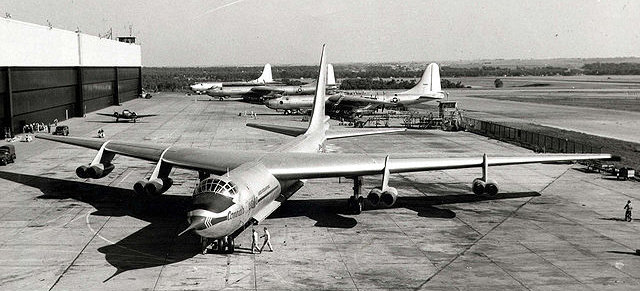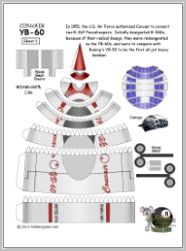
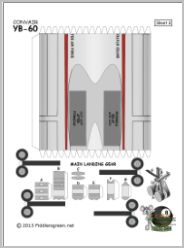
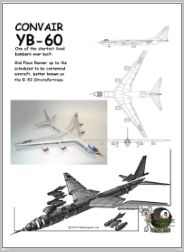
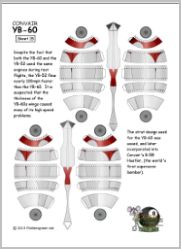
Convair-YB-60
CONVAIR YB-60
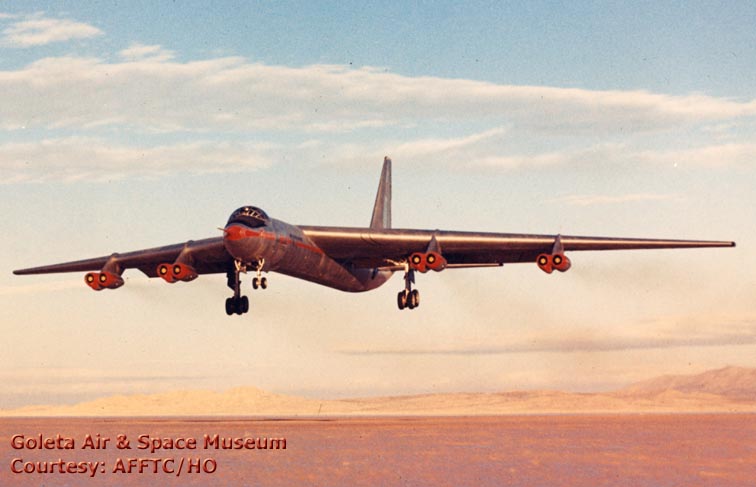 Rare color photo of the YB-60 over Rogers Dry Lake on the approach to the old main runway. Photo courtesy AFFTC/HO
Rare color photo of the YB-60 over Rogers Dry Lake on the approach to the old main runway. Photo courtesy AFFTC/HOFollowing the successful production of the largest mass-produced piston engine aircraft, the B-36 Peacekeeper, Convair issued a formal proposal for a jet propelled, swept-wing version.
In early 1951, the U.S. Air Force authorized Convair to convert two B-36Fs. Although initially designated as B-36Gs, since the aircraft was so radically different, it was eventually designated as the YB-60.
Unofficially, the YB-60 was competing with Boeing's B-52 Stratofortress for the first all-jet heavy bomber contract. Convair's proposal was considerably cheaper since it involved the modification of an existing design that was already in service, married with the fact that there was nearly a three-quarter commonality between the two aircraft.
Weaponry - Since the donating airframe remained mostly unchanged, the bomb capacity stayed the same as the B-36F at 72,000 lbs. The three forward turrets were omitted from the start, and the four retractable rear turrets were later deleted, leaving only the twin 20mm tail guns controlled by an ANIAPG-32 radar system, the results of which reduced the total necessary manpower from the initial ten to a five man aircrew.
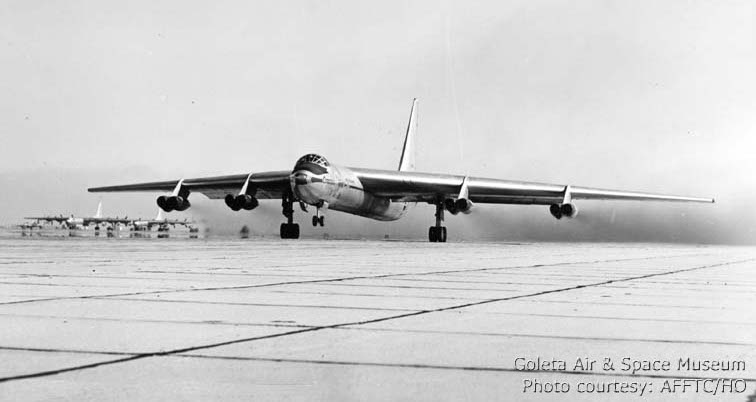 Test Flight - Convair YB-60 (#49-2676) made its maiden flight on April 18, 1952; three days after Boeing conducted its initial test of the YB-52. The initial tests were an
improvement over the B-36, but proved to be inferior when compared to those of the YB-52. Despite the fact that both aircraft were using eight Pratt & Whitney J57-P-3 turbojets, paired in
four pods, the YB-60 was approximately 100 mph slower than the YB-52, and demonstrated severe handling problems.
Test Flight - Convair YB-60 (#49-2676) made its maiden flight on April 18, 1952; three days after Boeing conducted its initial test of the YB-52. The initial tests were an
improvement over the B-36, but proved to be inferior when compared to those of the YB-52. Despite the fact that both aircraft were using eight Pratt & Whitney J57-P-3 turbojets, paired in
four pods, the YB-60 was approximately 100 mph slower than the YB-52, and demonstrated severe handling problems.
The YB-60 was capable of carrying 72,000 pounds of ordnance in comparison to the 43,000 pounds of the YB-52 was initially capable of carrying (the Big Belly modification increased the capacity to 60,000lbs). Given the multiple drawbacks of the YB-60, the Air Force could not justify the continuation of the project.
|
|
Ultimate Fate - With a total of 66 cumulative flying hours between Phase I and II testing, the test flight program was cancelled on January 20, 1953. The second prototype was never completed, though the airframe was built, it had not been fitted with engines or too much other equipment. Since Convair had satisfactorily completed their prototype contract, both YB-60s were accepted by the Air Force in 1954. The operational aircraft was not flown again, and by July, both airframes were scrapped. |
The Model - Aaron Murphy brings another big model to the Fiddler's Green Collection. At it's current scale of 1:96, this behemoth will have a wingspan of 25 3/4 inches and be 21 3/8 inches long. And for those desiring to upscale this in order to add it to their World's Smallest Air Museum Collection, she'll have over a 41 inches of wingspan.
One of the great things about the paper modelling community, is that there are rarely a lack of volunteers to do test builds. This was model was not exception, and Edwin Cho (aka - Papermate) not only did a beautiful job of putting this model together, but you wouldn't know that he shrank it down to 1:200. Under normal circumstances, that might seem a bit small, but this model is so large, that unless you knew before hand, you would never know. Here are some examples of his work.
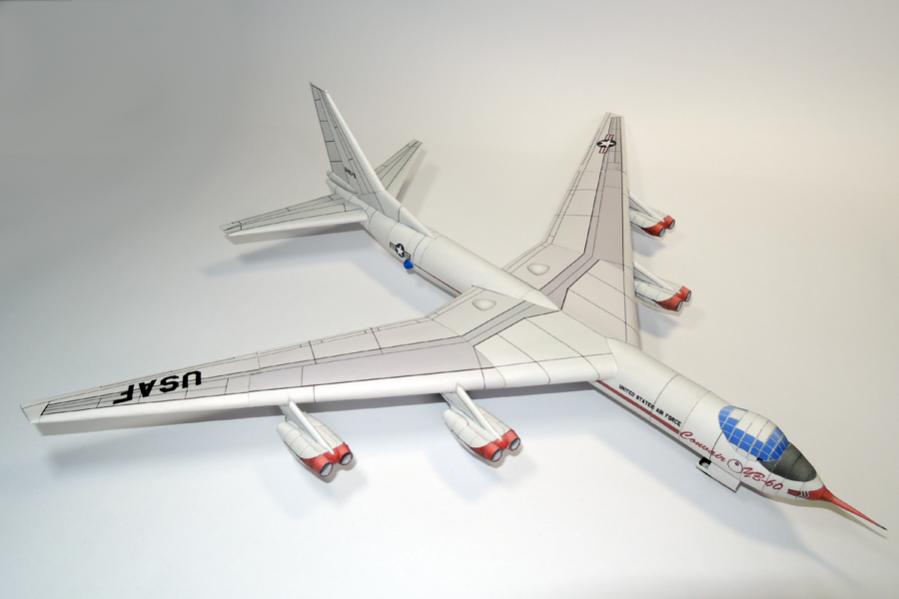
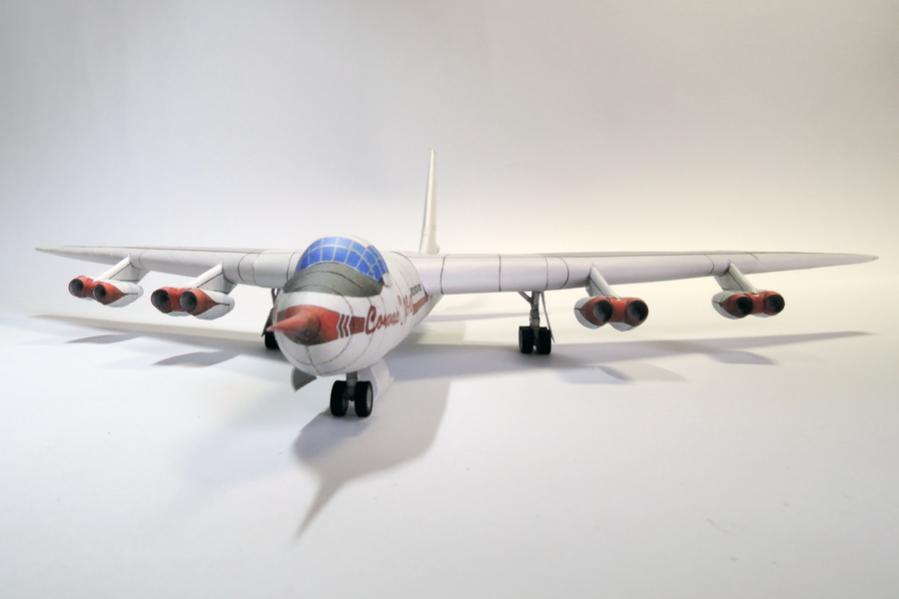
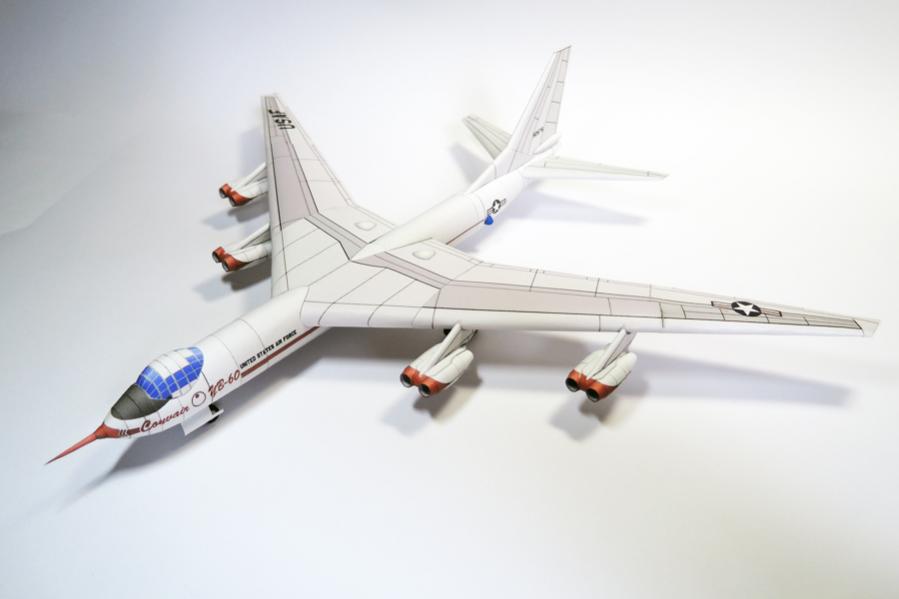
If you're curious how big the model is next to Edwin's beautiful example, he's provided us with an example, mounting the cockpit of the paper model that you'll receive with the reduced one that he completed.
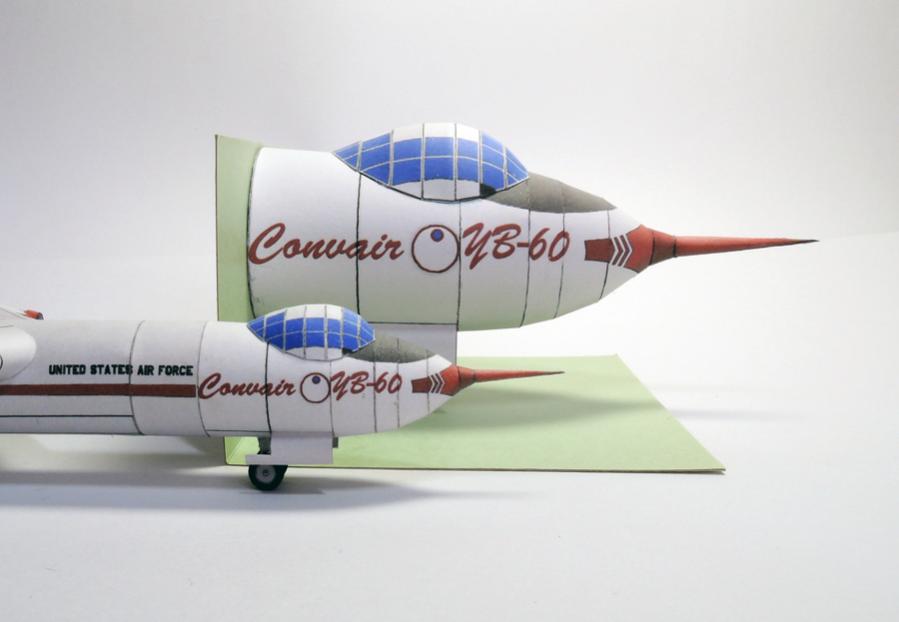
What People Say!
| EagleOne | A long time ago, my dad worked for Convair, where he worked on the designs for the B-36. I can't wait to add that and this model to my collection. |
| Model Fanatic | This looks fantastic, I can't wait to get this printed out and start cutting. |
| OleChap | This is a must have. |
| SF1 | I have to admit it, I never expected to see a model of this beast. |
Specifications
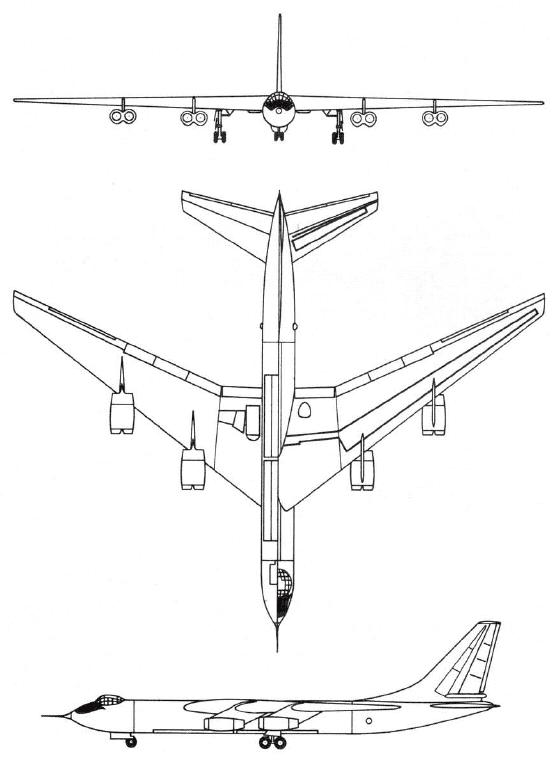 |
Crew 2 × Pilots 1 × Navigator 1 × Bombardier/Radio Operator 1 × Radio Operator/Tail Gunner General Characteristics Length: 171 ft Wingspan: 206 ft Wing Area: 5,239 ft² Height: 60ft 6in Empty weight: 153,000 lb Loaded weight: 160,000 lb Max. takeoff weight: 300,000 lb Power Plant: 8× Pratt & Whitney J56-P-3 Turbojets 8,700 lbf, (38 kN) each Performance Cruising Speed: 467 mph Maximum Speed: 508 mph at 39,250 ft Stall Speed: 132 mph Combat Radius: 2,920 mi Ferry Range: 8,000 mi Service Ceiling: 53,300 ft Rate of Climb: 1,060 ft/min Wing Load: 31 lb/ft² Thrust/Weight: 0.44 Armament Guns: 2 × 20mm Cannon in Tail Bombs: 72,000 lbs |
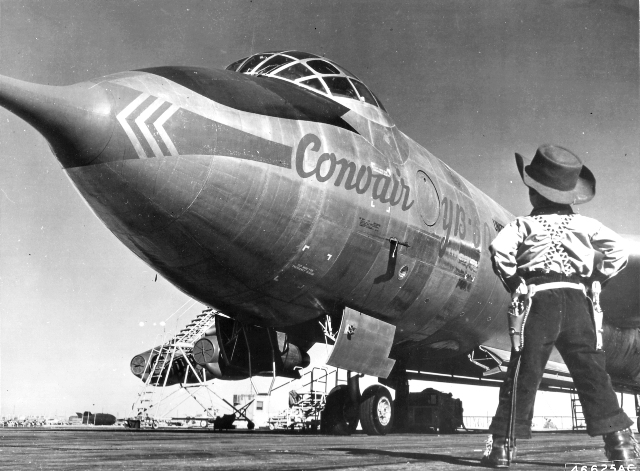
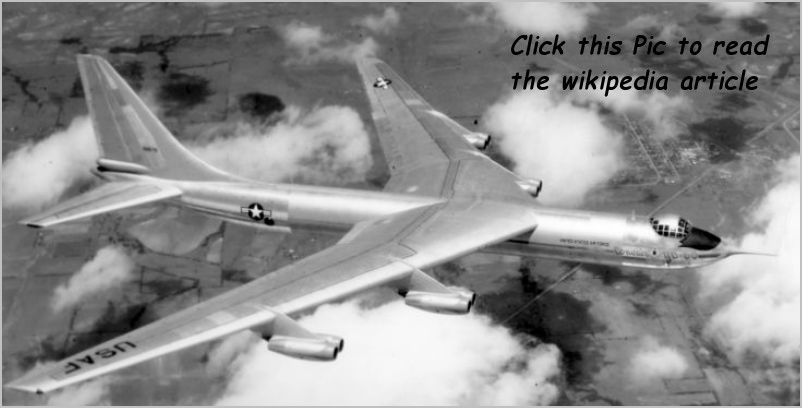
YB-60 in flight (picture thanks to Wikipedia)



